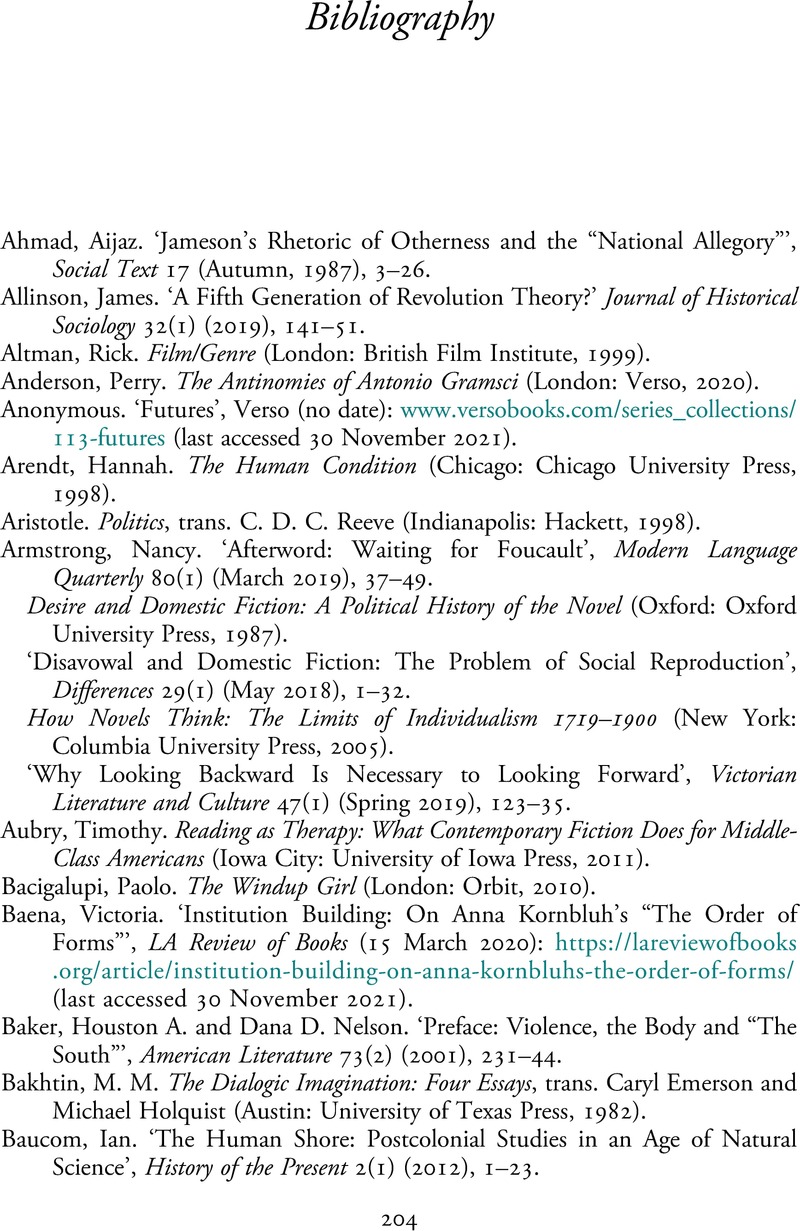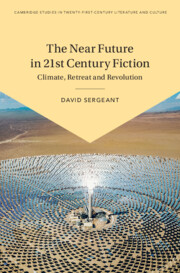Book contents
- The Near Future in Twenty-First-Century Fiction
- Cambridge Studies in Twenty-First-Century Literature and Culture
- The Near Future in Twenty-First-Century Fiction
- Copyright page
- Contents
- Acknowledgements
- Introduction
- Chapter 1 The Domestic Near Future 1
- Chapter 2 The Domestic Near Future 2
- Chapter 3 State of the Arts
- Chapter 4 Diagnostic Dead-Ends
- Chapter 5 The Art of History
- Chapter 6 Identity and Power
- Chapter 7 In Search of Revolution
- Chapter 8 The Genre of Revolution
- Notes
- Bibliography
- Index
- References
Bibliography
Published online by Cambridge University Press: 07 August 2023
- The Near Future in Twenty-First-Century Fiction
- Cambridge Studies in Twenty-First-Century Literature and Culture
- The Near Future in Twenty-First-Century Fiction
- Copyright page
- Contents
- Acknowledgements
- Introduction
- Chapter 1 The Domestic Near Future 1
- Chapter 2 The Domestic Near Future 2
- Chapter 3 State of the Arts
- Chapter 4 Diagnostic Dead-Ends
- Chapter 5 The Art of History
- Chapter 6 Identity and Power
- Chapter 7 In Search of Revolution
- Chapter 8 The Genre of Revolution
- Notes
- Bibliography
- Index
- References
Summary

- Type
- Chapter
- Information
- The Near Future in Twenty-First-Century FictionClimate, Retreat and Revolution, pp. 204 - 219Publisher: Cambridge University PressPrint publication year: 2022



